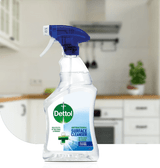Top Tips for Choosing the Right Disposable Gloves
When it comes to protecting yourself, whether while at work or during daily tasks, disposable gloves are an essential tool. With so many different types available on the market, choosing the right glove for your needs can be an overwhelming task.
What to Consider When Choosing Disposable Gloves
When choosing disposable gloves, it is important to consider the purpose for which they will be used. Different types of gloves are designed for different tasks, so it is essential to select the right type for your specific needs. For example, medical grade latex or nitrile gloves may be necessary in a healthcare setting while lightly-powdered vinyl gloves may be suitable when handling food. Additionally, you should also take into account your budget and determine how frequently you will need to purchase new gloves in order to keep up with safety protocols and industry standards.
To ensure optimal protection from hazardous materials and contaminants, a snug fit is essential; too tight can lead to discomfort whereas too loose can leave gaps where contamination can occur. It’s important that you measure your hands before purchasing any disposable glove products to ensure proper sizing and avoid any related risks or hazards associated with an ill-fitting pair of gloves.
- Material
When selecting disposable gloves, material should be an important consideration. Different materials offer different levels of protection and comfort for the user. Medical grade gloves such as latex or nitrile are usually preferred in healthcare settings due to their superior strength and puncture resistance. Vinyl gloves are also popular, as they are lightweight and provide a good barrier against most chemicals while remaining flexible enough for dexterity.
- Size
When selecting disposable gloves, size is an important factor to consider. Gloves that are too tight can cause discomfort and reduce dexterity, while those that are too loose may provide inadequate protection against hazardous materials or contaminants.
- Thickness
When selecting disposable gloves, thickness is an important factor to consider. Thicker gloves can provide more protection against hazardous materials and/or contaminants, but may reduce dexterity as a result of their reduced flexibility. On the other hand, thinner gloves may not be able to adequately protect against certain risks or hazards while providing users with greater comfort and improved range of motion. It’s therefore essential to choose the appropriate glove thickness based on the task at hand in order to ensure optimal safety and performance.
If you need a helping hand in choosing the most effective disposable gloves, check out the key features of vinyl and nitrile gloves.
Recent Posts
-
Introducing Huhtamaki Taste Food To Go Boxes
When it comes to food packaging, Huhtamaki stands out as a leader in innovation and quality. Our par
-
The Ultimate Guide to Top Surface Cleaner Sprays
In the quest for a clean and germ-free living space, kitchen or work environment, the choice of surf
-
Top 10 Evans Vanodine GreenTick Commercial Cleaning Chemicals
IPA Supplies is an approved Evans Vanodine distributor, meaning we can offer you the best prices and



